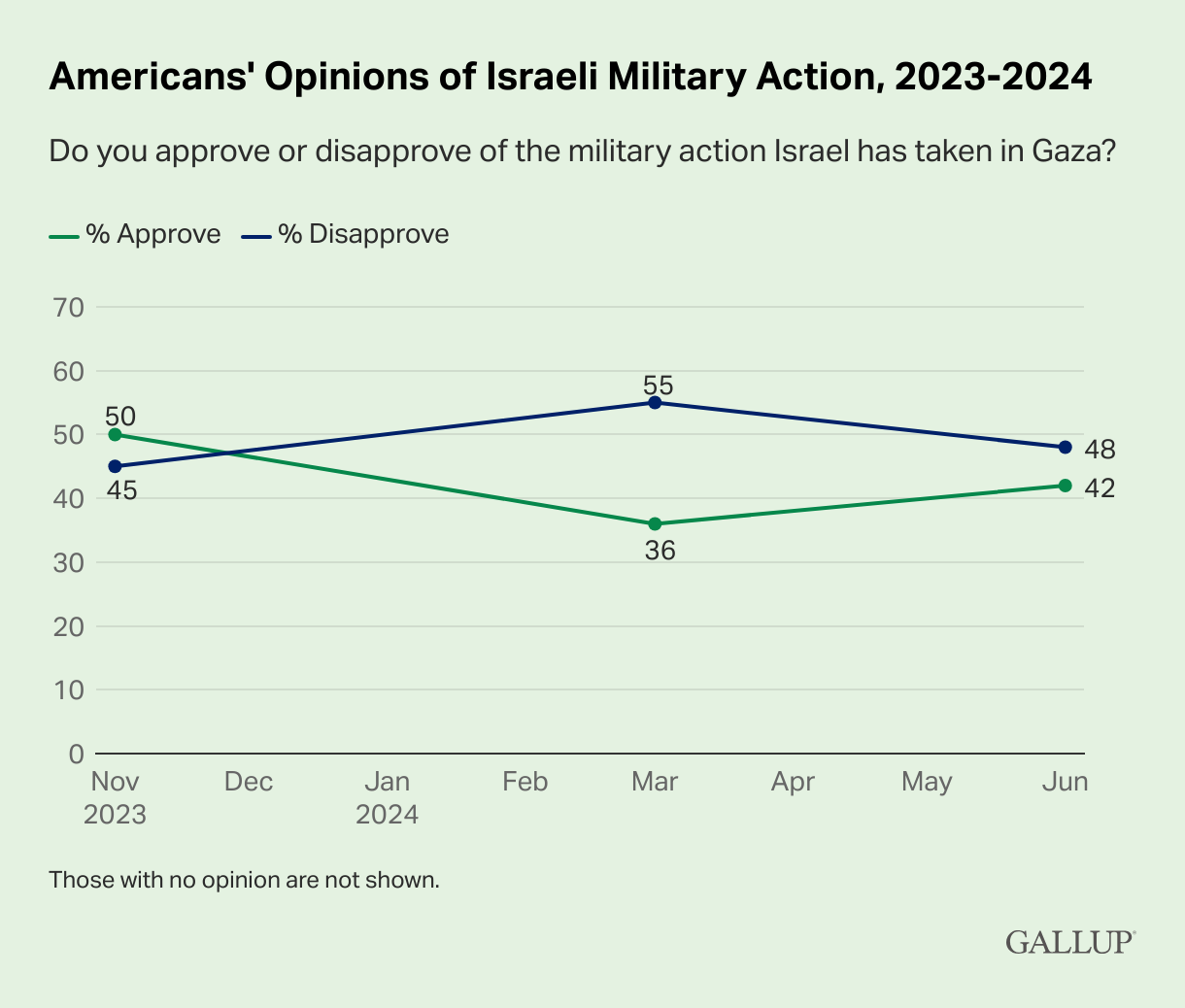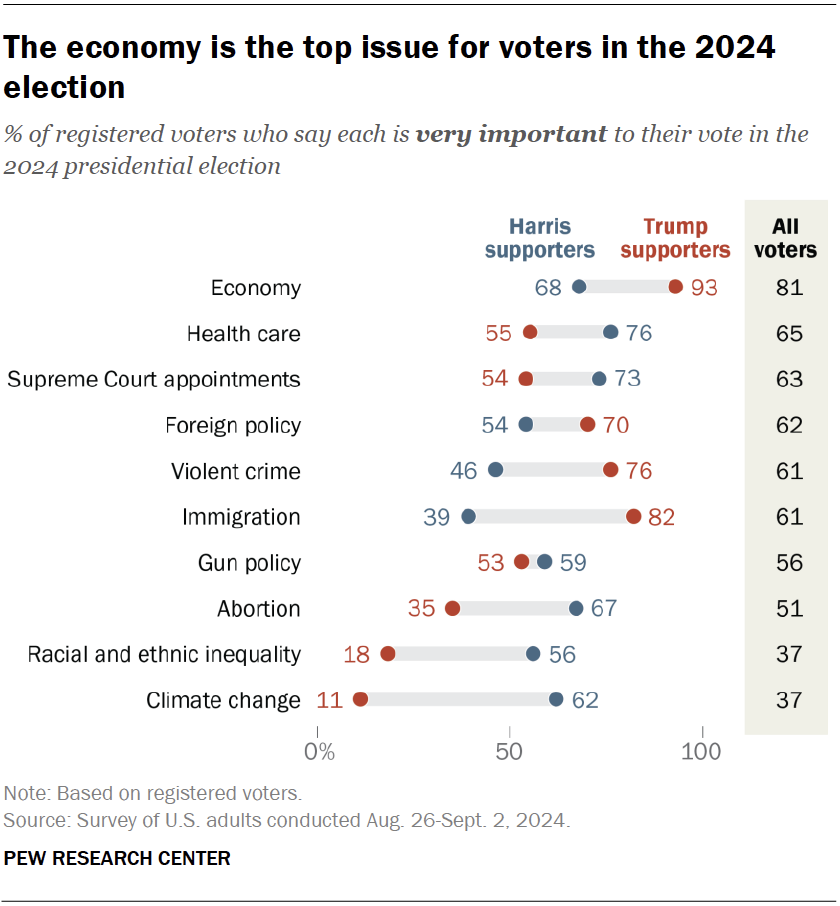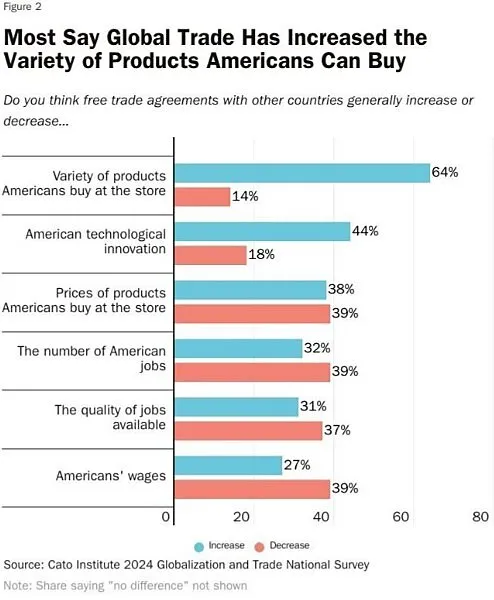Public Opinion: US Engagement with the World and the US Election
GMF plans two updates on polling prior to Election Day on November 5. The first update will be published in the latter half of October. A final update is scheduled for November 4.
US Engagement with the World
Americans are increasingly less satisfied with the US position in the world. Roughly two-thirds of Americans were satisfied in the early days of the George W. Bush administration. More recently, only about a third are (Source: Gallup).

Democrats are more likely than Republicans to want the United States to play a major role in the world. For most of the first decade of this century, however, Republicans were more supportive of a global role for the United States (Source: Gallup).

Republicans were once the internationalist party in the United States, but isolationism among Republicans started to grow under Donald Trump’s party leadership. Democrats’ isolationism has waned (Source: Good Authority)

Eight in 10 Harris supporters back compromising on policy with allies while only four in ten Trump supporters agree with that. Three-quarters of Republicans think US policies should maintain the country’s status as the world’s only military superpower. Just over half of Democrats share this view (Source: Pew Research).

Three times as many Republicans as Democrats back decreasing or ending the US commitment to NATO. But nearly four times as many Democrats as Republicans want to increase the American commitment to the defense alliance (Source: Gallup).

Unfavorable American views of Russia pre-date the war in Ukraine but are more widespread now than at any time since the collapse of the Soviet Union (Source: Gallup).

Americans’ negative views of China are more widespread than they have been since 2005—and even since the Tiananmen Square Massacre in 1989 (not shown on graphic). (Source: Pew Research).

A plurality of Americans disapprove of Israeli military action in Gaza, even if disapproval has recently waned a bit (Source: Gallup).
Americans believe trade has boosted consumer choice and innovation but also destroyed jobs and lowered wages (Source: CATO).
The US Election
The economy is the top issue for voters in the 2024 election, especially for Trump supporters. But six in ten voters cite foreign policy as another very important issue. The partisan divide on some issues is notably huge: a 43-percentage-point gap exists on the importance of immigration, and a 51-percentage-point gap exists on climate change (Source: Pew Research).

Among likely voters (those who have participated in past elections and are the most likely to vote in 2024_,Vice President Kamala Harris recently led former President Donald Trump by 6 percentage points, which is outside the margin of error (Source: ABC News).

Harris leads by 11 percentage points among likely women voters and including by 38 points among likely younger women voters. Trump leads by 26 points among likely white voters without a college degree and by 63 points among likely white evangelical Protestant voters (Source: ABC News).

In the United States, the president is chosen by an electoral college. The electoral votes from the six states shown here are likely to determine the Electoral College vote. Among these six, Harris recently led in two, Trump in one. The race was tied in the other three (Source: CNN).

Polling has its limitations, and US pre-election polling results should be taken with a grain of salt. Going back to 1952, polls have been likely to overestimate the Democratic vote margin in presidential elections (Source: Pew Research).

